Roseline Shark Care: Roseline sharks will eat fish that are smaller, so choose tank mates of a similar size. They are sensitive to water quality changes and require pristine tank conditions.
Regular water changes and good filtration are recommended to keep them healthy.
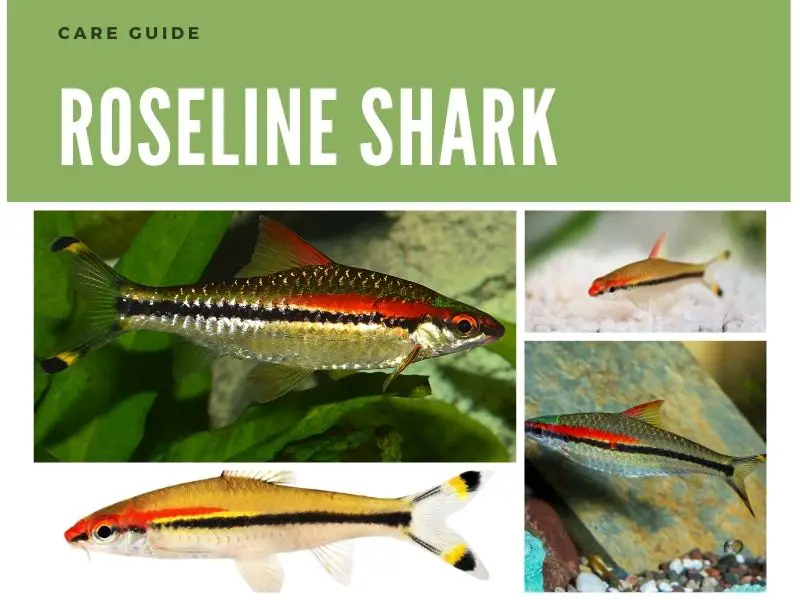
Credit: www.fishkeepingworld.com
Table of Contents
Minimum Tank Size For Roseline Sharks
Roseline Sharks, also known as Denison Barbs, require a minimum tank size to thrive in your aquarium. When determining the ideal tank size, there are a few factors to consider. First and foremost, you need to ensure that the tank provides enough space for the sharks to swim and explore their surroundings comfortably.
Additionally, maintaining water quality is crucial for these sensitive fish. They are prone to stress and can be negatively affected by changes in water conditions. Therefore, having a larger tank allows for better filtration and more stable water parameters. By providing a spacious and well-maintained environment, you will ensure the health and happiness of your Roseline Sharks.
Roseline Shark Tank Mates
Roseline Sharks are beautiful and vibrant fish that make a great addition to any aquarium. When choosing tank mates for Roseline Sharks, it is important to consider compatible fish species. Some suitable tank mates for Roseline Sharks include black tetras, suckermouth catfish, barbs, zebrafish, gouramis, and rainbowfish.
It is crucial to ensure that the tank mates are similar in size to avoid any potential for the Roseline Sharks to eat smaller fish. Additionally, Roseline Sharks can be sensitive to water quality changes, so maintaining pristine tank conditions through regular partial water changes and good filtration is essential.
These beautiful fish can survive for at least five years in an enriched habitat that meets their requirements. With proper care and suitable tank mates, Roseline Sharks can thrive and bring a touch of elegance to your aquarium.
Diet And Feeding Tips For Roseline Sharks
Roseline Sharks have a natural omnivorous diet, but they primarily feed on algae, small invertebrates, and insects in the wild. To provide a balanced diet in captivity, it is recommended to feed them a variety of foods. You should establish a feeding schedule and offer a combination of high-quality fish flakes, pellets, and frozen or live foods.
This will ensure that they receive all the necessary nutrients. It is also important to avoid overfeeding to prevent health issues and maintain water quality. Additionally, including some vegetable matter like blanched vegetables or spirulina-based foods can be beneficial. Remember, Roseline Sharks are sensitive to water quality changes, so regular partial water changes and good filtration are essential for their well-being.
Following these tips will help ensure that Roseline Sharks thrive in your aquarium.
Tank Setup For Roseline Sharks
Roseline Sharks require a well-prepared tank setup to thrive and stay healthy. It is important to maintain ideal water parameters for them. Providing hiding spots and suitable substrates in the tank will help create a comfortable environment for the sharks.
Appropriate lighting and vegetation options should be considered to mimic their natural habitat. Roseline Sharks are sensitive to water quality changes, so regular partial water changes and good filtration are recommended. These sharks are capable of growing up to around four to five inches, so it is crucial to choose tank mates that are similar in size to avoid any predation.
While they may eat some types of algae, they prefer heavily planted tanks as a refuge or territorial border. By following these guidelines, you can ensure the best care for your Roseline Sharks.
Maintaining Water Quality For Roseline Sharks
Roseline Sharks are highly sensitive to changes in water quality, making it crucial to maintain pristine tank conditions. Regular water changes and effective filtration are key to keeping these fish healthy and happy in their environment. Monitoring pH, ammonia, and nitrate levels is essential to ensure optimal water quality for Roseline Sharks.
These fish can grow up to four to five inches in length, so it’s important to choose tank mates that are similar in size. While Roseline Sharks may eat some hair algae and other types of algae, they prefer heavily planted tanks for refuge and territorial borders.
By providing a well-maintained habitat for Roseline Sharks, they can thrive and live for at least five years.
Common Health Issues And Care Tips For Roseline Sharks
Roseline Sharks are generally healthy fish, but as with any living creature, they can experience health issues. Identifying common health issues in Roseline Sharks is crucial for their well-being. It is important to take preventive measures and follow quarantine practices to ensure the health of these sharks.
Regular water changes and good filtration can help maintain pristine tank conditions, as Roseline Sharks are sensitive to water quality changes. In case of any health issues, recommended treatments and medications should be provided promptly. Roseline Sharks can eat some types of algae and may feed on soft-leaved plants, but they prefer heavily planted tanks for refuge and territorial border.
By following these care tips and being proactive in addressing any health concerns, you can provide a thriving and healthy environment for your Roseline Sharks.
Breeding Roseline Sharks
Breeding Roseline Sharks can be a challenging yet rewarding endeavor for aquarium enthusiasts. Creating optimal breeding conditions is crucial for success. It is important to carefully consider factors such as water quality, temperature, pH levels, and adequate hiding spots for the fish.
Providing the right environment can encourage the sharks to breed and lay eggs. Once the eggs hatch, caring for the fry and raising the offspring require special attention. Feeding them a balanced diet of small live or frozen foods is essential for their growth and development.
Regular water changes and good filtration are necessary to maintain pristine tank conditions and keep the sharks healthy. Overall, breeding Roseline Sharks requires careful planning and proper care, but it can lead to a thriving population in your aquarium.
Frequently Asked Questions For Roseline Shark Care
How Many Roseline Sharks Should Be Kept Together?
Roseline sharks should be kept together with tank mates that are similar in size.
Will Roseline Sharks Eat Other Fish?
Roseline sharks will eat other fish that are small enough, so choose similar-sized tank mates.
Are Roseline Sharks Sensitive?
Roseline Sharks are sensitive to water quality changes and require pristine tank conditions. They should be kept in a well-maintained environment.
Do Roseline Sharks Eat Algae?
Yes, roseline sharks eat some types of algae, such as hair algae and BBA, but they may also feed on soft-leaved plants. They prefer heavily planted tanks as they use the plants for refuge or territorial borders.
Faq 1: What Are The Minimum Tank Mates For Roseline Sharks?
Roseline sharks should be kept with tank mates such as black tetra, suckermouth catfish, barb, zebrafish, gourami, and rainbowfish. These fish have similar sizes and requirements, making them suitable companions.
Faq 2: Will Roseline Sharks Eat Other Fish?
Roseline sharks can grow up to four to five inches long, making them medium-sized aquarium fish. While they might eat fish that are tiny enough, choosing tank mates that are similar in size will prevent them from becoming prey.
Faq 3: Are Roseline Sharks Sensitive To Water Quality Changes?
Yes, roseline sharks are quite sensitive to any water quality changes. To keep them healthy and happy in their tank environment, regular partial water changes and good filtration are recommended to maintain pristine tank conditions.
Conclusion
Roseline Shark Care is crucial for maintaining the health and happiness of these captivating aquarium fish. These medium-sized sharks can grow up to four to five inches long and require a tank that matches their size. When choosing tank mates, it is important to ensure they are of similar size to prevent any incidents of predation.
Roseline Sharks also have a sensitivity to water quality changes, so it is essential to maintain pristine tank conditions through regular partial water changes and good filtration. While they may eat some hair algae and other types of algae, they do not prefer plants such as anubias, swords, or grasses.
Instead, they use these plants as a refuge or territorial border. By providing an enriched environment that meets their needs, Roseline Sharks can thrive for at least five years. So, create the ideal habitat and enjoy the mesmerizing beauty of these amazing creatures.
I am a passionate aquarist with over 30 years of hands-on experience in fishkeeping. My journey began at a young age, collecting fish from the wild and learning through experimentation. Specializing in tropical fish, I bring a deep understanding of the hobby to FishKeepingMadeSimple. The site provides honest, detailed reviews of essential products and accessories to help fellow enthusiasts create the best environments for their fish.

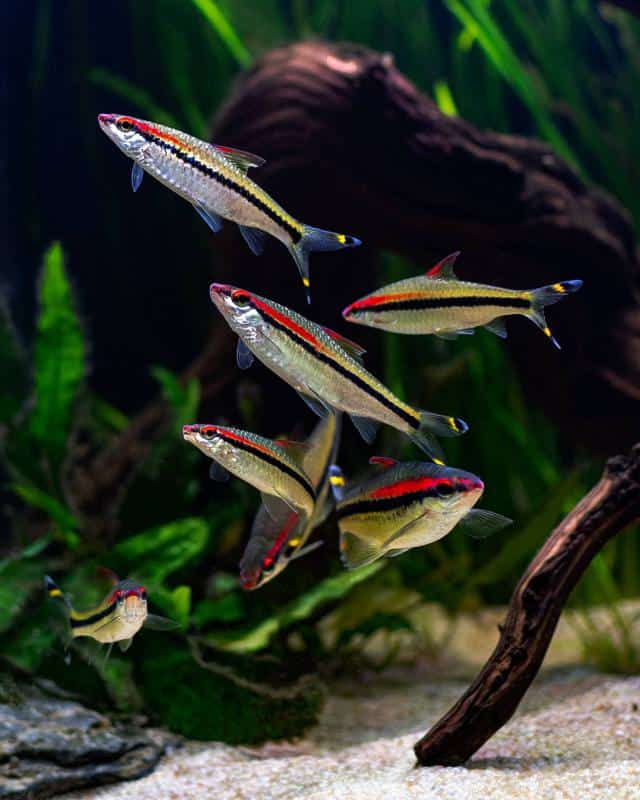
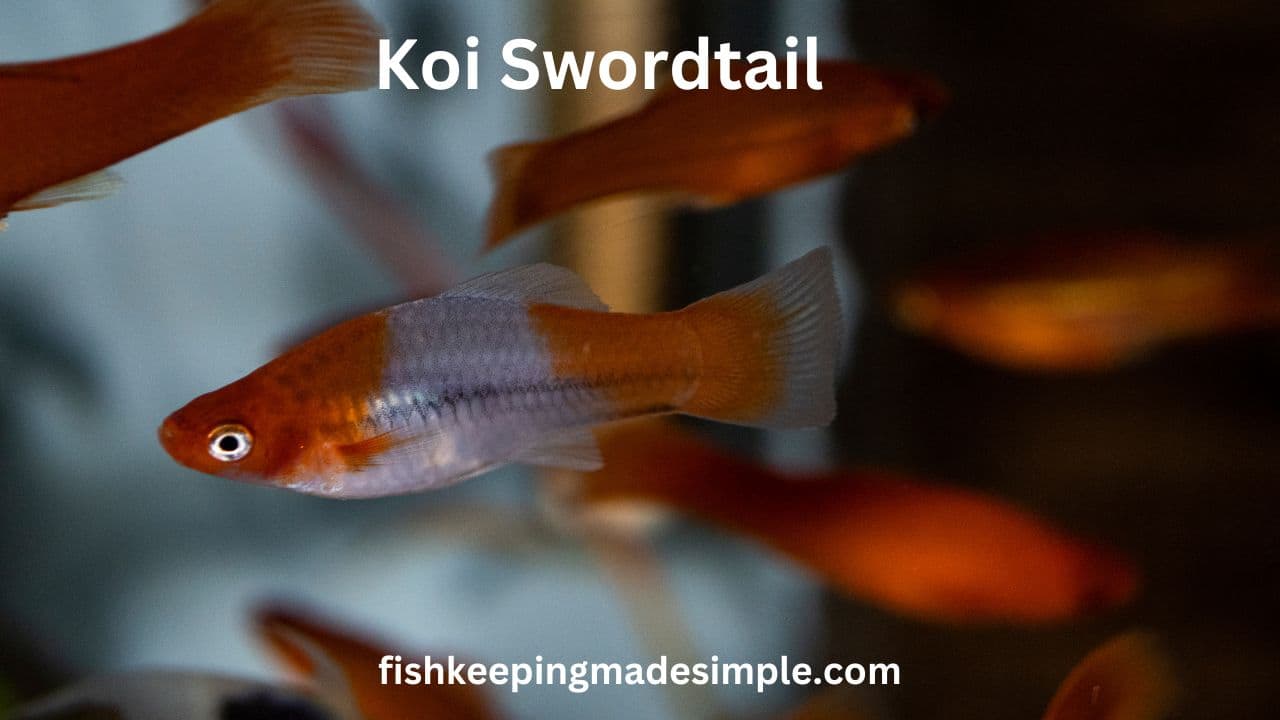

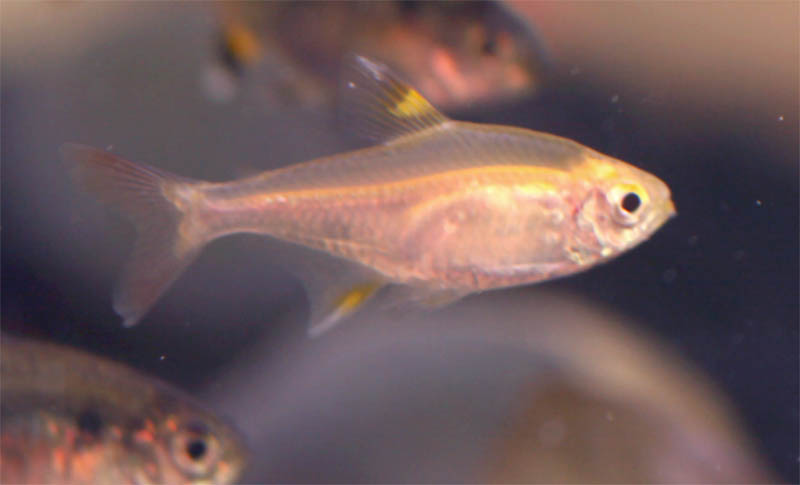
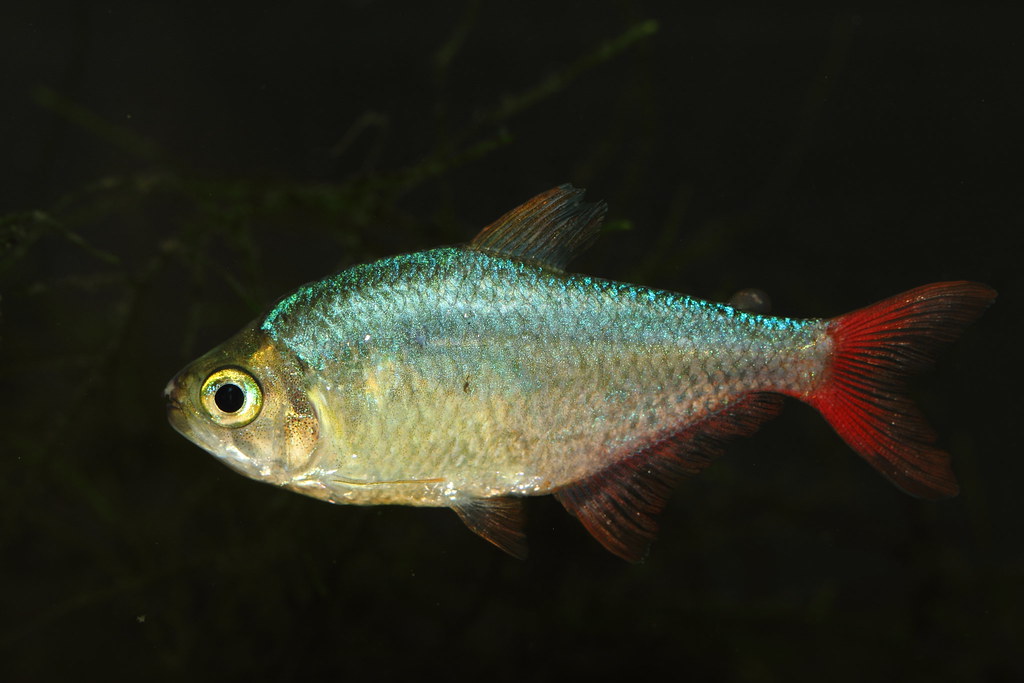
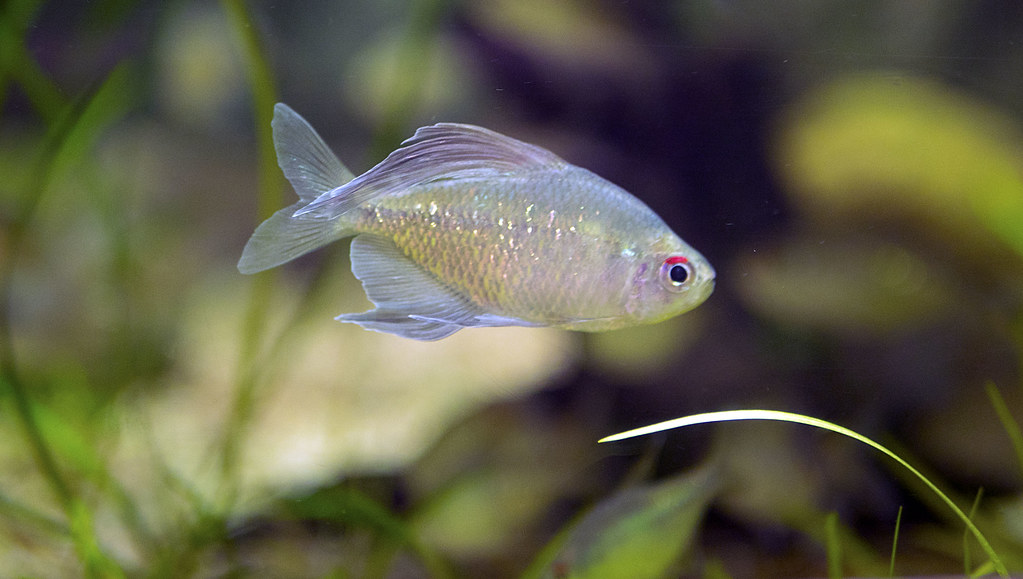
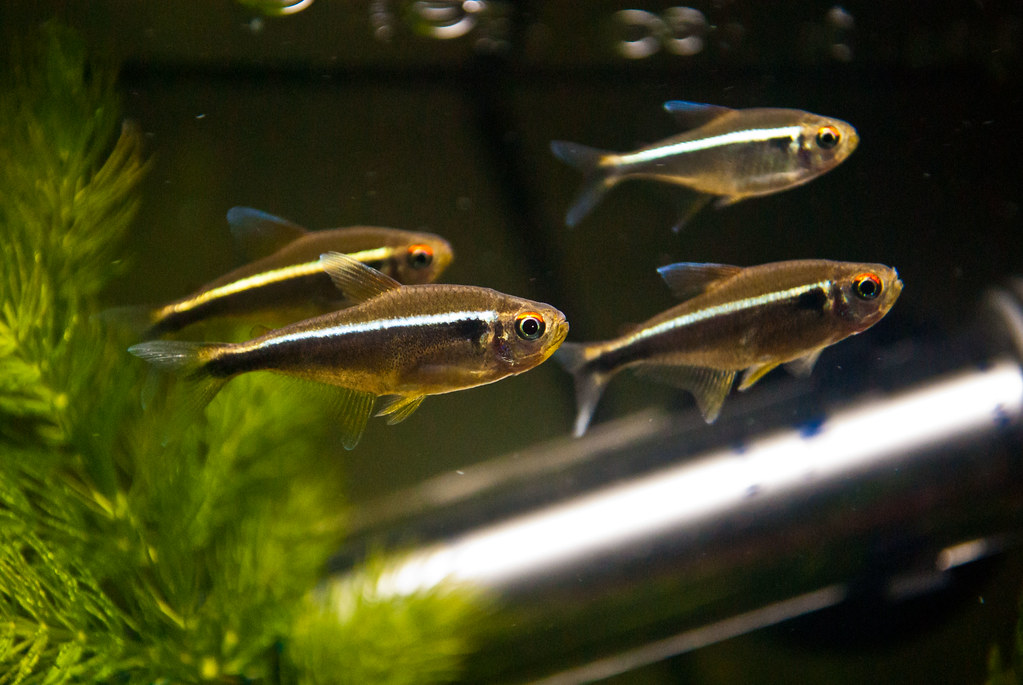
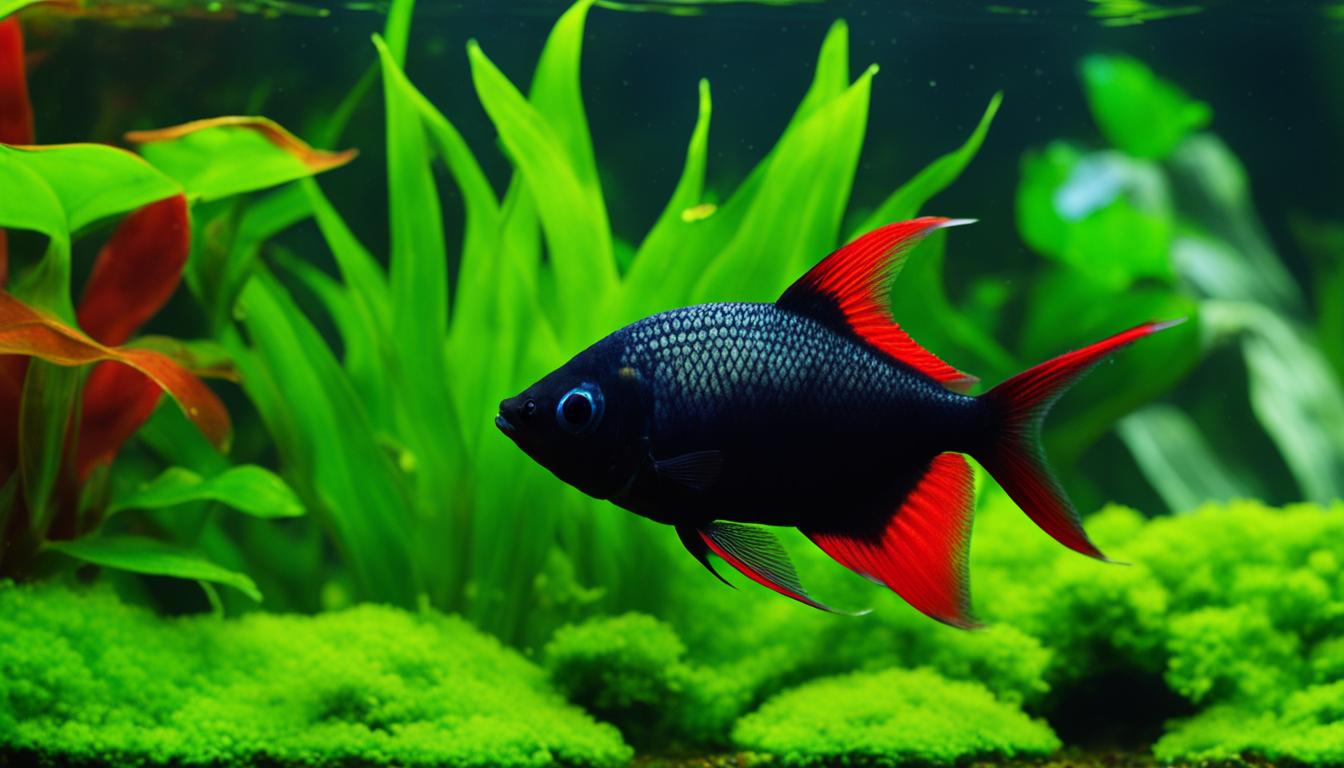

[…] guide will walk you through an in-depth aquarium maintenance schedule. We’ll cover everything from daily cleaning tasks to taking care of your equipment. By understanding essential maintenance routines, you can keep your tank […]